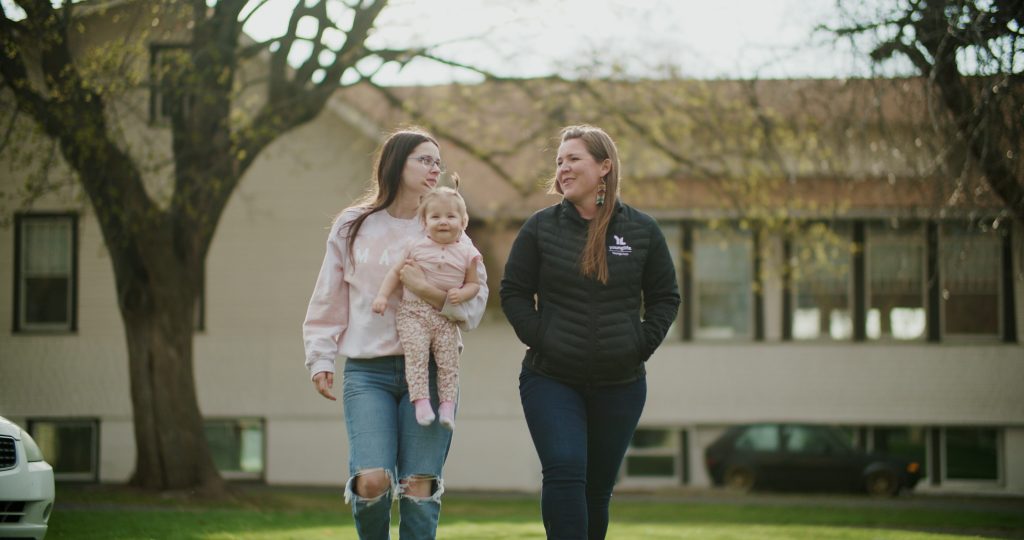In the world of youth ministry, few principles resonate as deeply as the idea that relationships are the key to transformation. Young Life focuses on introducing teenagers to Jesus Christ and helping them grow in their faith. We understand the most powerful way to reach kids is through authentic, meaningful connections. What follows are a few core principles that Young Life leaders embrace in reaching kids, based upon an interview with Arvada, Colorado, Area Director Jason Zaboth.

THE CORE OF YOUNG LIFE: BUILDING RELATIONSHIPS
People long to be truly known. For many teens, the world feels like an overwhelming place, full of expectations, distractions, and uncertainty. They may feel misunderstood, invisible, or disconnected. Young Life’s role is not to overwhelm them with information, but to create space where they can be seen, heard, and valued. This “knowing” is not just about understanding a teen’s name or background; it’s about entering into their story and learning what makes them who they are.
This mirrors how God works with us. Throughout the Bible, God shows us his deep desire to know us — not as a distant figure but as a loving, personal Creator. From the very beginning, God’s pursuit of us is clear. In Genesis 3:9, after Adam and Eve sinned, God called out, “Where are you?” This wasn’t a question of geographical location; God knew exactly where they were. It was an invitation for them to be seen, known, and reconciled to him. Similarly, Young Life is about entering into the stories of teens, creating an environment where they feel safe enough to reveal who they truly are — flaws, struggles, and all.
God is in the business of knowing us intimately, even when we feel unworthy or unlovable. Just as Young Life leaders offer kids a safe space to open up, God offers us the same grace and presence. He sees our hearts, our struggles, and our fears. Through his love, he invites us to bring our whole selves to him, trusting we’re loved no matter what.
THE POWER OF LISTENING
During the pandemic, Young Life staff and leaders couldn’t host large group events, so they focused on spending time one-on-one with kids, listening to their stories. It’s not about leading with answers or imposing advice, but about asking good questions and listening to kids’ responses. It’s modeled after Jesus, who throughout his ministry often asked questions to understand people better, to draw them into deeper conversations, and to challenge their perspectives.
Jesus was not a distant teacher who lectured from afar. He was a relational leader who entered into the lives of those around him. When Jesus met the Samaritan woman at the well, he asked, “Will you give me a drink?” (John 4:7), a simple yet profound question that opened the door for deep conversation. His willingness to listen and ask questions allowed the woman to reveal her personal struggles, and in turn, Jesus offered her living water — his presence and his love. This interaction is a model for how we can be present in the lives of others.
By asking questions like, “Who knows you the best?” leaders create space for kids to reflect on their relationships and their sense of belonging. Often, the answer is heartbreaking: “Nobody.” In those moments, Young Life leaders step in and give them a place to belong, “I want to be that person who knows you.” This is a reflection of God’s heart for us. He wants us to feel known and have a sense of belonging. He longs for us to feel loved.
Psalm 34:17 says, “The righteous cry out, and the Lord hears them; he delivers them from all their troubles.” Just as leaders listen attentively to the stories of teens, God hears us. He listens intently to our prayers and our fears. Whether we speak through words or through silence, God is attentive and present, and he responds with his love, grace, and guidance.
VULNERABILITY AS A GATEWAY TO CONNECTION
Another powerful aspect is the role of vulnerability in building meaningful relationships. When leaders share their own stories of struggle, stories of fear and difficulties, kids see them as more approachable. This vulnerability builds trust and invites kids to let down their walls. Teens, especially, are keenly aware of when adults are just “going through the motions” or when they’re genuinely invested in their lives.
This principle of vulnerability reflects the heart of the gospel. God doesn’t remain distant or aloof from our pain. Instead, he entered into human suffering through the person of Jesus Christ. In Hebrews 4:15, we are reminded, “For we do not have a high priest who is unable to empathize with our weaknesses, but we have one who has been tempted in every way, just as we are — yet he did not sin.” Jesus, in his perfect love, chose to experience the depth of human suffering, betrayal, and pain. In doing so, he invited us to share our vulnerabilities with him.
When we open up to others, we not only share our struggles, but we also invite them into the healing and redemptive work God can do in our lives. God uses our brokenness to reflect his glory. By embracing vulnerability, we allow God to use our weaknesses to show his strength. In our honesty and authenticity, we provide a pathway for others to experience God’s grace.
INVITING JESUS INTO THE STORY
The ultimate goal of Young Life is not simply to make teens feel better but to invite them into God’s story. Once leaders have built trust and heard their stories, they can begin to ask questions that introduce the hope and love of Christ. It’s in these moments, where teens have shared their deepest fears, that the message of God’s love is most powerful. It’s when we are most vulnerable that we are most receptive to God’s healing.
Through vulnerability and storytelling, leaders have the opportunity to invite teens to trust God’s plan for their lives. This is where the ministry becomes transformational — not just through the relationship itself, but through pointing others to the redemptive work of Christ.
In the same way, God invites us to share our stories with him, knowing that he has the power to redeem and restore. Just as leaders help teens to trust God has a plan for them, God is constantly inviting us to trust in his sovereignty and love, even in the midst of our struggles.
CONCLUSION
Young Life’s methods mirror the way God engages with us. God calls us to be his hands and feet in this world, using our stories, vulnerabilities, and willingness to listen to create spaces where kids can experience his love. In the same way that leaders seek to know teens’ hearts and invite them into a relationship with Jesus, God desires to know us deeply and personally.
Through the power of connection, listening, and vulnerability, we reflect God’s love for us and others. Just as God has entered into our pain and story, he calls us to enter into the lives of others — offering the hope, healing, and grace that only he can provide.
This article is based upon an interview with Jason Zaboth, Young Life area director in Arvada, Colorado.

To see the interview with Jason, watch HERE
Want to learn more about Gen Z? Check out https://relate.younglife.org/







